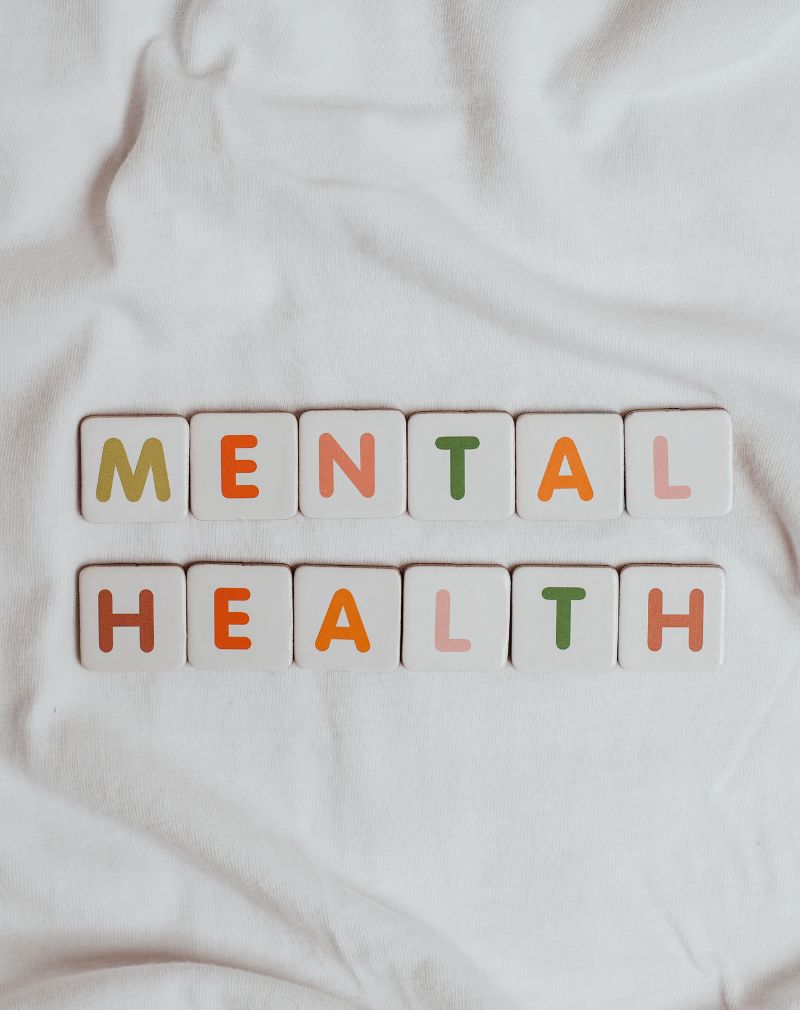Mental Health is not fixed, it is fluid and ever changing depending upon the insight and the resolution of your problems.
What is Mental Health?
Mental Health is more than the absence of mental illness, it is the presence of wellbeing. It refers to a person’s emotional, psychological, and social well-being, encompassing their emotional stability, the ability to cope with stress and life’s challenges, and their capacity for forming and maintaining relationships. It is a crucial aspect of overall health, as it influences one’s thoughts, feelings, and behavior. Good mental health promotes resilience, self-esteem, and a positive outlook on life. Maintaining and nurturing mental health is essential for a fulfilling and balanced life, as it enables individuals to function effectively, handle adversity, and enjoy meaningful connections with others.
“Mental Health is not a luxury; it is a necessity and the right of every human being. Feeling healthy, happy, contented, and satisfied is an indication of good mental health” says Dr Muhammad S. Tahir, Ex Assistant professor Columbia University, and consultant Psychiatrist / Neurologist.
Individuals may feel doubtful about their mental health for various reasons. Some common triggers for such doubts include persistent feelings of sadness, anxiety, or despair, changes in sleep patterns or appetite, difficulties in concentrating, engaging in self-destructive behaviors, or experiencing challenges in maintaining relationships and daily functioning. During this blog we will summarize the common triggers for each age group in brief. However, it is important to remember that seeking professional help and support is crucial when such doubts arise. We will also explain in this blog how early intervention and treatment can help address and manage mental health concerns more effectively.
Common concerns of mental health vs. concerns which indicate mental illness.
Mental health concerns encompass a wide spectrum of emotional and psychological challenges that people may experience throughout their lives. These concerns can range from everyday stress, anxiety, and mood fluctuations to difficulties in relationships, low self-esteem, and the impact of life changes. It’s essential to recognize that mental health concerns are a natural part of the human experience and don’t necessarily indicate the presence of a mental illness. Many individuals encounter these concerns at various points in their lives and find ways to manage them effectively through self-care, support from loved ones, and coping strategies.
In contrast, mental illnesses represent diagnosable conditions that significantly affect an individual’s thoughts, emotions, and behaviors. Common mental illnesses include major depressive disorder, anxiety disorders, bipolar disorder, schizophrenia, eating disorders, and post-traumatic stress disorder. These conditions are characterized by more severe and persistent symptoms that often impair one’s ability to function in daily life. Seeking professional evaluation and treatment is crucial for individuals experiencing mental illnesses, as early intervention can help manage and improve these conditions effectively. It’s important to remember that mental health exists on a continuum, with varying degrees of concerns and disorders, and seeking help is a proactive step in addressing these challenges.
“Communities must recognize that mental health is distinct from mental illness, and just as with physical health, every individual has the inherent right to receive proper treatment without the burden of judgment or stigma.” Dr Muhammad S. Tahir explains.
Briefly, mental health and mental illnesses are related but distinct concepts.
- Mental Health:
- Mental health refers to a person’s overall psychological and emotional well-being. It encompasses a spectrum of emotions, thoughts, and behaviors that reflect a person’s ability to cope with life’s challenges, form positive relationships, and maintain a sense of balance and resilience.
- Good mental health is characterized by emotional stability, self-confidence, a positive self-image, and effective stress management. It allows individuals to lead fulfilling lives, make healthy choices, and adapt to changing circumstances.
- Mental Illness:
- Mental illness, on the other hand, pertains to specific conditions or disorders that disrupt an individual’s mental and emotional well-being. These conditions can manifest as significant disturbances in thought processes, mood, behavior, or perception.
- Mental illnesses can include disorders like depression, anxiety, schizophrenia, bipolar disorder, and more. These conditions often require evaluation, treatment, and, in many cases, ongoing management through psychotherapy, medication, or other interventions.
Hence mental health represents the broader concept of overall well-being, while mental illness refers to specific, diagnosable conditions that can affect a person’s mental and emotional state.
“Good mental health is about maintaining a positive mental and emotional state, while mental illness involves specific challenges and conditions that may require medical or therapeutic intervention. It’s important to take care of one’s mental health to prevent the development or exacerbation of mental illnesses.” Explains one clinical psychologist with 20 years of experience.
It is utmost important to seek professional help of a psychiatrist, psychologist, therapist, counselor, or any mental health professional at the first signs of distress. Through professional help and guidance at early stage you can develop coping strategies, build resilience, and address issues, making it less likely for these concerns to escalate into more severe mental illnesses.
Emotional Health is a part of mental health and overall wellbeing.
Yes, you read it right, emotional health is an integral component of overall health. It encompasses a person’s ability to understand, express, and manage their emotions effectively. Emotions play a significant role in influencing our thoughts, behaviors, and overall well-being so much so our physical health. When emotional health is positive and balanced, it can have a profoundly positive impact on behavior and overall wellness, whereas unmanaged or negative emotions can lead to detrimental effects on mental and physical health.
First, chronic negative emotions, such as prolonged stress and sadness, can contribute to the development of mental health issues like depression and anxiety disorders. These conditions can then have a cascading effect, impacting various aspects of mental health. For example, depression can lead to changes in sleep patterns, appetite, and energy levels, all of which can further exacerbate emotional and physical distress.
Second, emotional distress can lead to unhealthy coping behaviors, such as overeating, substance abuse, or a sedentary lifestyle, which can have adverse effects on physical health. This can result in weight gain, chronic health conditions, and a weakened immune system. The interplay between emotional distress and unhealthy behaviors can lead to a cycle of deteriorating mental and physical health.
Third, stress response triggered by negative emotions can release stress hormones like cortisol, which, when chronically elevated, can have detrimental effects on the cardiovascular, immune, and digestive systems. It can increase the risk of heart disease, weaken the immune response, and contribute to digestive issues.
Moreover, the mental and emotional toll of emotional distress can affect our motivation to engage in physical activity, eat a balanced diet, and take care of our overall well-being, further impacting physical health.
On the other hand, when someone has good emotional health, they are more likely to exhibit behaviors that reflect resilience, adaptability, and emotional intelligence. They can navigate life’s challenges with greater ease, make rational decisions, and maintain positive relationships. Conversely, poor emotional health can lead to behaviors such as impulsivity, mood swings, and difficulty managing stress. It can contribute to the development or exacerbation of mental health issues like anxiety and depression. Nurturing and maintaining emotional health are fundamental aspect of promoting positive behaviors and overall mental well-being.
Common mental health triggers for men:
Mental health triggers for men can vary widely depending on individual experiences, but there are several common factors and issues that may affect men’s mental health. It’s important to note that mental health challenges can impact anyone, regardless of gender, but some triggers and issues are more frequently associated with men:
- Societal Expectations: Traditional expectations of masculinity, such as stoicism and emotional restraint, can create pressure for men to hide their emotions, making it difficult to express vulnerability or seek help when needed.
- Work-related Stress: The demands and pressures of work, job instability, and long working hours can contribute to stress, anxiety, and depression.
- Relationship Struggles: Difficulties in intimate relationships, marriage, or family dynamics can be significant triggers for mental health issues.
- Social Isolation: Men may be less likely to build and maintain social connections, leading to feelings of loneliness and isolation, which can impact mental health.
- Trauma and PTSD: Exposure to traumatic events, especially in professions like the military and law enforcement, can lead to post-traumatic stress disorder (PTSD).
- Substance Abuse: Men may be more prone to substance abuse issues, which can exacerbate underlying mental health concerns.
- Body Image and Eating Disorders: While often underreported, body image concerns and eating disorders can affect men’s mental health as well.
- Midlife Crisis: Some men experience existential or identity crises in middle age, which can lead to mental health challenges.
- Health Concerns: Serious health issues or chronic conditions can trigger anxiety and depression in men.
- Financial Stress: Economic pressures, including debt and financial instability, can lead to mental health problems.
It is essential for men to recognize these potential triggers and seek support when they experience mental health concerns. Breaking down stereotypes of masculinity and promoting open communication and emotional expression can also contribute to better mental health outcomes for men. Remember that seeking help is a sign of strength, not weakness, and can lead to improved well-being.
Common mental health triggers for women:
Mental health triggers for women can vary widely depending on individual experiences, but there are several common factors and issues that may affect women’s mental health. It’s important to note that mental health challenges can impact anyone, regardless of gender, but some triggers and issues are more frequently associated with women:
- Hormonal Changes: Hormonal fluctuations during menstruation, pregnancy, postpartum, and menopause can contribute to mood swings and mental health challenges.
- Body Image and Eating Disorders: Societal pressures related to body image and beauty standards can lead to body dissatisfaction and the development of eating disorders.
- Reproductive Health: Fertility issues, pregnancy complications, and pregnancy loss can lead to stress and emotional distress.
- Domestic and Gender-Based Violence: Experiences of domestic violence or sexual assault can have severe psychological and emotional impacts on women.
- Caregiving Responsibilities: Women often shoulder a significant portion of caregiving responsibilities for children, aging parents, or family members with chronic illnesses, leading to increased stress.
- Work-Life Balance: Balancing career and family responsibilities can lead to stress and burnout, affecting mental health.
- Social Pressures: Societal expectations related to appearance, relationships, and parenting can contribute to stress and anxiety.
- Trauma: Exposure to traumatic events, including childhood abuse or traumatic experiences, can lead to post-traumatic stress disorder (PTSD).
- Perfectionism: The pursuit of perfection in various life domains, including work and parenting, can lead to high levels of stress and anxiety.
- Chronic Health Conditions: Women may experience conditions like autoimmune disorders or chronic pain, which can impact mental health.
It is crucial for women to recognize these potential triggers and seek support when experiencing mental health concerns. Promoting self-care, seeking therapy or counseling, building strong social support networks, and challenging societal norms that contribute to stress and mental health issues can all be important steps in maintaining and improving women’s mental health. Remember that seeking help is a sign of strength and can lead to improved well-being.
Common mental health triggers for teen age:
Mental health triggers for teenagers, both boys and girls, can be influenced by a combination of biological, psychological, and environmental factors. Adolescence is a period of significant emotional and cognitive development, which can make young people more vulnerable to various mental health challenges. Common triggers for both teenage boys and girls can include:
- Academic Pressure: The academic demands of school, including exams, homework, and college admissions, can lead to stress, anxiety, and perfectionism.
- Social Pressures: Peer pressure, issues related to popularity, and the desire to fit in can contribute to stress and feelings of inadequacy.
- Bullying: Experiencing or witnessing bullying, whether in-person or online, can lead to emotional distress and mental health concerns.
- Body Image Concerns: Adolescents may grapple with body image issues, eating disorders, and self-esteem challenges due to societal beauty standards.
- Family Dynamics: Family conflicts, divorce, or changes in family structure can trigger emotional distress in teenagers.
- Substance Use: Experimentation with drugs and alcohol can increase the risk of substance use disorders and associated mental health problems.
- Peer Relationships: Issues with friendships, peer conflicts, or romantic relationships can impact teenagers’ mental well-being.
- Identity and Self-Exploration: Adolescents are in the process of forming their identity, which can lead to questioning and exploration, but it can also bring about uncertainty and stress.
- Trauma: Exposure to traumatic events, such as abuse, violence, or accidents, can lead to post-traumatic stress and emotional challenges.
- Screen Time and social media: Excessive screen time and negative social media experiences can contribute to feelings of isolation, comparison, and cyberbullying.
- Hormonal Changes: The hormonal fluctuations of puberty can lead to mood swings, irritability, and emotional instability.
- Sexual Identity and Orientation: Exploring one’s sexual identity and orientation can be a source of stress, particularly in less accepting environments.
It is important to recognize that while many teenagers face these challenges, individual experiences can vary widely. Providing a supportive and non-judgmental environment, open communication, and access to mental health resources are essential in helping teenagers navigate these triggers and build emotional resilience. Parents, caretakers, and schools play a crucial role in supporting adolescent mental health.
Common mental health triggers for children under age 12:
Mental health triggers for children under the age of 12 can be influenced by various factors, and it’s important to remember that young children may have limited means of expressing their emotional distress. Common triggers for mental health issues in this age group may include:
- Family Stress: Children may be sensitive to family stressors such as parental conflicts, divorce, financial difficulties, or changes in family dynamics.
- Bullying: Experiences of bullying, either in school or within peer groups, can lead to emotional distress and anxiety.
- School-related Stress: Academic pressures, such as homework and tests, as well as school transitions and social challenges, can affect a child’s emotional well-being.
- Traumatic Events: Exposure to traumatic events, like accidents, natural disasters, or witnessing violence, can lead to post-traumatic stress and emotional difficulties.
- Loss or Grief: The loss of a loved one, including pets, can be a source of grief and sadness for children.
- Peer Relationships: Friendship issues, peer conflicts, or feelings of exclusion can influence a child’s self-esteem and emotional state.
- Parental Health Issues: Children may be affected by their parents’ physical or mental health problems.
- Changes in Routine: Disruptions in daily routines, such as moving to a new home or school, can be a source of stress.
- Family Moves: Relocations to new cities or countries can lead to adjustment challenges and a sense of loss.
- Social Isolation: Loneliness or a lack of opportunities for social interactions can affect a child’s mental well-being.
- Learning Disabilities or Special Needs: The challenges associated with learning disabilities or special needs can contribute to feelings of frustration and anxiety.
Early intervention and professional support are crucial if a child’s emotional distress appears to be persistent or impacting their daily life. Promoting emotional resilience, teaching coping skills, and fostering a strong support system can help children develop better emotional well-being.
Common triggers of mental health concern in babies under the age of 5:
Mental health triggers for babies under the age of 5 are challenging to identify due to their limited ability to express themselves verbally. However, there are situations and circumstances that can potentially impact a young child’s emotional well-being. These may include:
- Maternal Mental Health: A mother’s mental health can indirectly affect her baby’s well-being. Maternal depression, anxiety, or stress during pregnancy and in the postpartum period can influence the infant’s emotional state.
- Parental Conflicts: Frequent conflicts or a turbulent family environment can lead to stress for a young child.
- Neglect or Abuse: Physical, emotional, or neglectful abuse can have severe consequences on a child’s emotional health.
- Attachment Issues: Inconsistent or inadequate attachment with primary caregivers can impact a child’s sense of security and emotional well-being.
- Parental Substance Abuse: A parent’s substance abuse can disrupt the caregiving environment and negatively affect a child’s emotional development.
- Illness or Hospitalization: Prolonged illness or hospitalization can be stressful for young children and may lead to feelings of insecurity.
- Loss or Separation: The loss of a loved one or separation from a parent or caregiver can be emotionally distressing for young children.
- Exposure to Trauma: Witnessing or experiencing traumatic events can have a lasting impact on a child’s mental well-being.
- Disruptions in Routine: Sudden changes in routine or caregiving arrangements can be unsettling for young children.
In cases where a child may be experiencing emotional distress, it’s important for parents to create a safe and nurturing environment, offer consistent love and support, and seek professional guidance if there are concerns about a child’s emotional health or development. Early intervention and a stable, loving environment are crucial for promoting the mental health and emotional well-being of young children.
When is the right time to seek help for mental health concerns:
One should seek help Immediately if they see any below mentioned symptoms in themselves or anyone around them. Here are some general & basic guidelines for each group.
- For Men:
- Seek help when you notice persistent and distressing emotional symptoms, changes in behavior, or other signs of mental health issues. This applies to stress, anxiety, depression, and other concerns.
- Men should challenge traditional notions of masculinity that discourage seeking help and reach out to mental health professionals early, as they may be less likely to do so.
- Be proactive in addressing mental health issues, as early intervention is often more effective in preventing the progression of concerns.
- For Women:
- Women should seek help when they experience persistent emotional distress, body image concerns, or symptoms of mental health conditions like anxiety or depression.
- Pay attention to changes in emotional well-being during significant life transitions, such as pregnancy, postpartum, menopause, or major relationship changes.
- Women should prioritize self-care and emotional well-being, especially if they are juggling multiple roles and responsibilities.
- For Teens:
- Adolescents should seek help when they experience changes in behavior, mood swings, and difficulties in coping with stress or academic pressures.
- Parents and caregivers should encourage open communication with teens about their emotions and create a supportive environment for seeking help.
- Adolescents should be encouraged to reach out to school counselors, teachers, or mental health professionals if they experience bullying, trauma, or other stressors.
- For Children:
- Parents and caregivers should monitor young children for changes in behavior, mood, or social interactions, as they may not be able to express their emotional concerns verbally.
- Seek help if children exhibit persistent emotional distress, experience family disruptions, or encounter traumatic events.
- Early intervention can be especially crucial for young children, as it can help prevent long-term emotional challenges.
- For Younger Children:
- Babies rely on their caregivers for emotional support. Parents should seek help if they notice changes in a baby’s behavior, feeding patterns, or sleeping routines that suggest emotional distress.
- Babies are sensitive to changes in their immediate environment and caregiving. Seek help if there are disruptions in routine or attachment issues.
- Consulting with a pediatrician or child development specialist (mental health Professional) can be beneficial if there are concerns about a baby’s emotional well-being.
In any case, the right time to seek help for mental health concerns is when symptoms are persistent, distressing, and impacting many areas of an individual’s daily life.
Mental health professionals can provide strategies, therapy, or counseling that are tailored to your specific needs, helping you better understand and manage your emotions and life challenges. Additionally, they can assist in preventing potential triggers or stressors from exacerbating your mental health concerns.
“Early intervention is often more effective in managing and preventing the progression of mental health issues.” Explains a clinical psychologist. “Encouraging open communication and reducing the stigma surrounding mental health is crucial in helping individuals of all ages and genders seek help when needed.”
Addressing mental health proactively is akin to preventive healthcare for the mind. Just as we seek preventive/screening for medical issue before it becomes a major health problem, taking the same approach with mental health can significantly improve one’s overall quality of life and reduce the likelihood of developing severe mental health issues. It is important to remember that there’s no need to wait until things get worse; professional help can be a valuable resource in managing your mental health and ensuring a happier, more balanced life.
The Psychiatric Department at the American Wellness Centre in Dubai Healthcare City provides comprehensive mental health services. They focus on early intervention, personalized treatment plans, and offer a supportive environment for managing various mental health concerns. Their experienced psychiatrists, psychologists, and therapists work collaboratively to address each patient’s unique needs, ensuring holistic care for emotional and psychological well-being.



